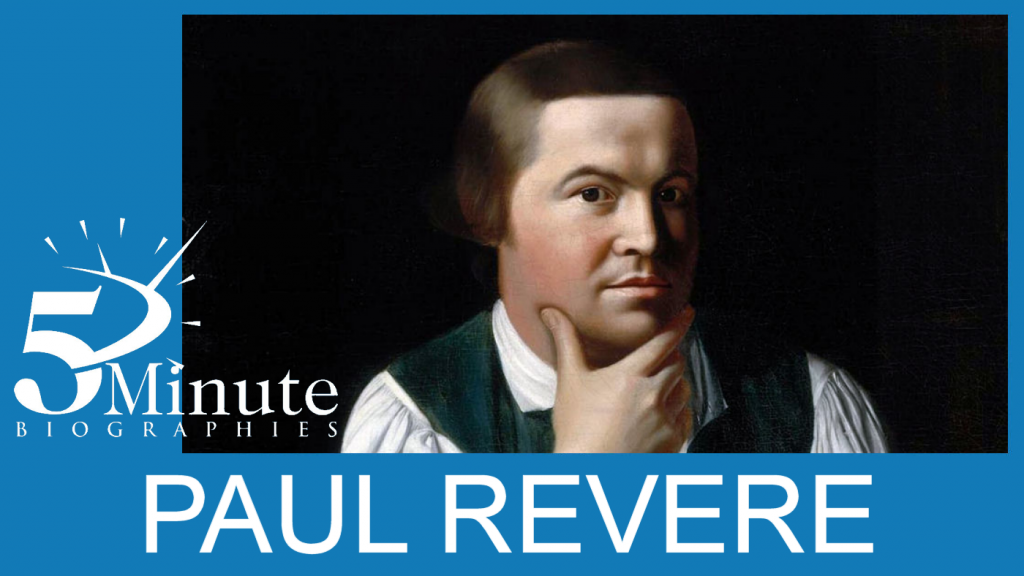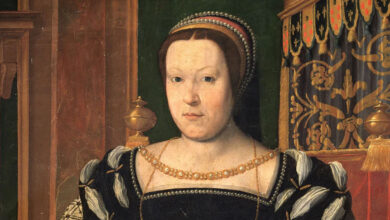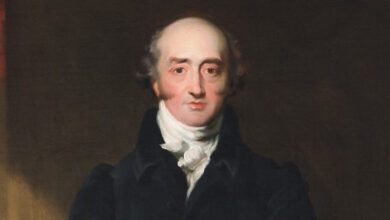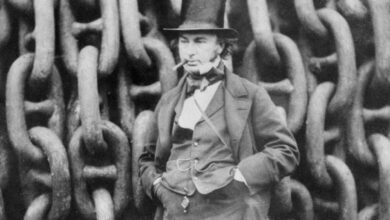
“In Medford, I awaked the Captain of the Minute Men, and after that, I alarmed almost every house, till I got to Lexington” – Paul Revere
Podcast: Play in new window | Download
Subscribe: Spotify | Amazon Music | Youtube Music | RSS
Paul Revere Biography
Paul Revere is one of the most prominent figures of the American Revolution and achieved infamy thanks to his storied ‘Midnight Ride’. However, outside of his military and revolutionary history, Revere was also an important figure in the Boston community, where he worked as a silversmith and engraver whilst helping to plant the seeds of early American industrialisation.
Revere was born in Boston on 21 December 1734 according to the calendar system of the era. He was the son of a French Huguenot named Apollos Rivoire and Deborah Hitchborn. Hitchborn was a prominent member of a family that owned a small shipping wharf in the area, whereas Rivoire eventually came to make his living as a silversmith after initially learning under the tutelage of John Coney.
Following Rivoire’s decision to anglicise his name to Revere, the family went on to have 12 children, of whom Paul was the third. At the age of 13 he left school to learn his father’s trade, which allowed the young Revere to build a variety of powerful connections in the Boston area. These connections eventually served the young silversmith well in his later life as one of the most prominent figures of the American Revolution.
Revere eventually enlisted in the provincial army following his father’s death in 1754, with the promise of consistent pay believed to be one of the main factors in his decision. He served as a second lieutenant in the provincial artillery regiment during the French and Indian War, however, he did not remain in the army long and eventually decided to return home to continue his work as a silversmith.
On August 4th 1757 he married Sarah Orne, with the marriage bearing eight children.
Once the British economy fell into decline in the aftermath of the Seven Years’ War, Revere’s silversmith venture began to experience a decline in fortunes. This led the young Revere to take up dentistry, learning under Dr. Joseph Warren. Revere found that he shared many political and social views with the man and both would become important figures in the revolutionary years.
Both men were particularly opposed to the British Stamp Act, which levied a large tax against all colonial earnings in an effort to help revive the British economy. This opposition led him to come into contact with the ‘Loyal Nine’ who organised the earliest protests against the act.
Though not a member of that initial nine, Revere supported their cause and would eventually become a member of a group of militants calling themselves the ‘Sons of Liberty’, producing a number of engravings as part of his work with them.
In time, Revere became one of the most outspoken opponents of British colonial rule in Boston. It was during this period that the British enacted the Tea Act, which gave the British East India Company the right to ship tea directly to the colonies, thus bypassing local merchants and ensuring that Britain received a larger portion of the income from its sale.
At this point both Revere and Dr. Warren were members of a group named the ‘North End Caucus’ and they took it upon themselves to organise a watch of a British ship named the Dartmouth, which was due to deliver a shipment of tea to the colony. Their aim was to prevent the unloading of the tea in protest of the Tea Act, which eventually led to the group making the decision to dump the tea from the Dartmouth and two other ships into the harbor. The event became known as the Boston Tea Party and was one of the earliest shots in what would become the revolutionary war.
Following the Boston Tea Party, Revere began to make regular journeys to New York and Philadelphia as part of his work with the Boston Committee of Public Safety. The purpose of these journeys was to report on political unrest in the colonies and there are records of 18 having taken place before Revere undertook his most famous journey.
With the threat of a British military invasion moving from a possibility into an actual event in 1775, Revere was sent by Warren to warn the colonies of their impending arrival. While the phrase “The British are coming,” has been incorrectly attributed to Revere, he succeeded in warning many colonials and patriots of the impending threat, with many more following his lead and riding to other areas of the country to spread the warning. The event later became known as ‘The Midnight Ride’.
Revere later became an extremely prominent figure in the war that followed, taking part in a number of famous battles whilst continuing to improve on his industrial capacity in an effort to both boost his own social standing and to better create supplies for the revolutionary forces.
Following the war Revere became interested in large-scale manufacturing and played a large part in the industrial boom that helped stabilise the American economy in the post-war years. He is also credited with the introduction of improved labour practices, some of which are used to this day. Amongst the practices attributed to him are providing flexible working hours for his skilled workers and providing wages that were in-line with the employees’ skill level, rather than implementing a flat wage across the board. This encouraged less-skilled workers to improve in an effort to advance.
Revere passed away on May 10th 1818, at the age of 83. His exploits during the revolutionary war and his work in the years that followed guaranteed that he would go down in history as a true American patriot.
Podcast: Play in new window | Download
Subscribe: Spotify | Amazon Music | Youtube Music | RSS




